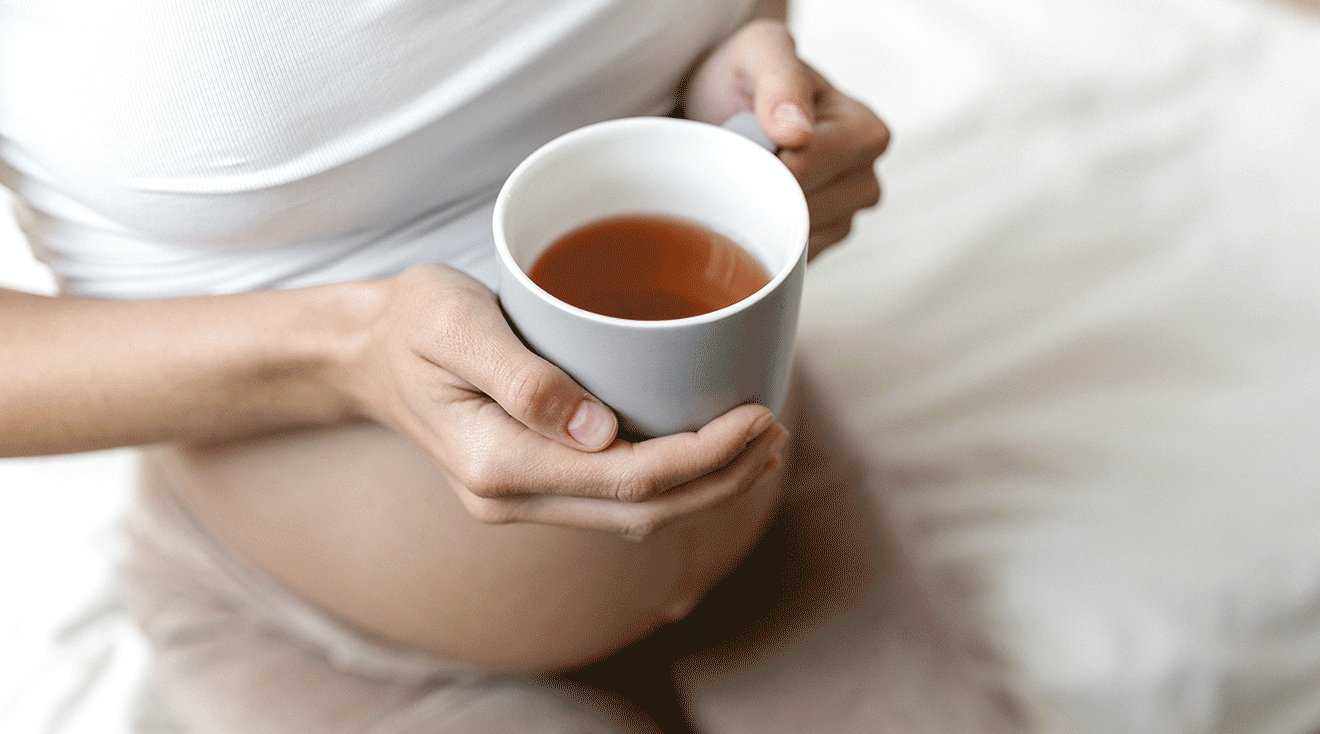Are any sleep aids safe during pregnancy? Yes, some sleep aids are safe during pregnancy, but it’s important to consult with a healthcare provider. Pregnancy can often bring about difficulties in getting a good night’s sleep due to various factors such as hormonal changes, discomfort, and anxiety.

Are Any Sleep Aids Safe During Pregnancy? What Expecting Moms Should Know
Many women experience sleep disturbances during pregnancy due to physical and hormonal changes. While it is important to address sleep issues, the safety of both the mother and the developing fetus must be prioritized.
Over-the-Counter (OTC) Options:
- Diphenhydramine (Benadryl) is an antihistamine commonly used as a sleep aid. It is generally considered safe during pregnancy, especially when used occasionally and in recommended doses.
- Doxylamine (Unisom): Another antihistamine often used to manage nausea and as a sleep aid. It is usually safe during pregnancy when taken as directed.
Prescription Options:
- Zolpidem (Ambien): Sometimes prescribed for severe insomnia. While some studies suggest it is relatively safe, others indicate potential risks, and it should be used under strict medical supervision.
- Eszopiclone (Lunesta) and Zaleplon (Sonata): These are also prescribed for sleep disorders but should only be used if necessary and prescribed by a healthcare provider.
Non-Pharmacological Approaches:
- Cognitive Behavioral Therapy for Insomnia (CBT-I): Effective and safe for managing insomnia without medications.
- Sleep Hygiene Practices: A regular sleep schedule, a comfortable sleep environment, and relaxation techniques can significantly improve sleep quality.
General Advice:
- Always consult with a healthcare provider before starting any sleep aid.
- Avoid combining different sleep aids unless prescribed.
- Monitor for any adverse effects and report them to a healthcare provider immediately.
As a result, many pregnant women may be searching for safe sleep aid options to help them get the rest they need. While it’s crucial to prioritize the safety of both the mother and the baby, certain sleep aids have been deemed safe for use during pregnancy.
During Pregnancy:
| Sleep Aid | Safety Category* | Common Use | Potential Risks | Recommended Use |
|---|---|---|---|---|
| Diphenhydramine (Benadryl) | B | Occasional sleep disturbances | Drowsiness, dry mouth, dizziness | Short-term, as needed |
| Doxylamine (Unisom) | B | Sleep disturbances, nausea | Drowsiness, dry mouth, dizziness | Short-term, as needed |
| Zolpidem (Ambien) | C | Severe insomnia | Drowsiness, dizziness, dependency | Under strict supervision |
| Eszopiclone (Lunesta) | C | Severe insomnia | Drowsiness, dizziness, dependency | Under strict supervision |
| Zaleplon (Sonata) | C | Severe insomnia | Drowsiness, dizziness, dependency | Under strict supervision |
*Safety Category:
- B: No evidence of risk in humans, but studies are inadequate.
- C: Risk cannot be ruled out; animal studies have shown adverse effects, but no adequate human studies.
However, it is always recommended to consult with a healthcare provider before taking any sleep aids to ensure the mother’s and baby’s well-being and health. We will explore some sleep aid options considered safe during pregnancy.

Credit: www.thebump.com
The Importance Of Sleep During Pregnancy
Getting enough sleep during pregnancy is essential for both the mother and the baby. Sleep plays a crucial role in ensuring the well-being of pregnant women and promoting proper fetal development. Sleep deprivation during pregnancy can have detrimental effects on the overall health of expectant mothers.
Lack of sleep can lead to increased stress levels, which can negatively impact the immune system and make pregnant women more susceptible to illnesses. It can also result in hormonal imbalances, mood swings, and a higher risk of developing complications such as gestational diabetes and preeclampsia.
Failing to get adequate rest can affect pregnant women’s cognitive functions and focus, making it challenging to perform everyday tasks. It can also lead to fatigue, decreased energy levels, and reduced ability to cope with physical and emotional changes during pregnancy.
Moreover, insufficient sleep can disrupt the placenta’s normal functioning, hindering the baby’s oxygen and nutrient supply. This can potentially affect the baby’s growth and development, increasing the risk of preterm birth or low birth weight.
Expectant mothers must prioritize sleep and establish a consistent sleep routine to ensure a healthy pregnancy. Creating a comfortable sleep environment, practicing relaxation techniques, and adhering to a regular sleep schedule can improve sleep quality and overall well-being.
By ensuring sufficient sleep, pregnant women can positively impact their own health and support the optimal growth and development of their babies.
:max_bytes(150000):strip_icc()/shutterstock_485159863-be86fc39e2f74047b06254a7ad5b3d0a.jpg)
Credit: www.parents.com
Common Sleep Issues During Pregnancy
Many women experience sleep issues during pregnancy that can impact their overall well-being. Insomnia, the inability to fall asleep or stay asleep, is a common problem. Hormonal changes, discomfort, stress, and anxiety can all contribute to insomnia during pregnancy.
Another sleep issue that some pregnant women face is Restless Legs Syndrome (RLS). This condition causes an uncontrollable urge to move the legs, often accompanied by uncomfortable sensations. RLS can make it difficult for pregnant women to get a good night’s sleep.
Sleep Apnea, a condition characterized by pauses in breathing during sleep, can also occur during pregnancy. It can lead to daytime sleepiness, fatigue, and other complications. Pregnant women with sleep apnea should seek medical advice to ensure the safety of both themselves and their unborn child.
Expectant mothers need to prioritize healthy sleep habits. Practicing relaxation techniques, maintaining a comfortable sleep environment, and following a regular sleep schedule can help improve sleep during pregnancy. If sleep issues persist or worsen, it is advisable to consult with a healthcare provider for guidance and support.
What are the general guidelines for sleep aids during pregnancy?
Generally, pregnant women are advised to avoid using sleep aids unless necessary and prescribed by a healthcare provider. Most sleep aids are not tested extensively in pregnant women, making it difficult to determine their safety. It’s crucial to consult with a healthcare provider before taking any medication or supplement for sleep.
Are over-the-counter (OTC) sleep aids safe during pregnancy?
Most OTC sleep aids are not recommended during pregnancy. Antihistamines like diphenhydramine (found in Benadryl) and doxylamine (found in Unisom) are sometimes used, but they should only be taken under the guidance of a healthcare provider. These medications can have side effects and may not be safe for long-term use.
Can prescription sleep aids be used during pregnancy?
Prescription sleep aids are generally not recommended during pregnancy due to potential risks to the baby. Medications like benzodiazepines (e.g., Xanax, Valium) and non-benzodiazepine hypnotics (e.g., Ambien, Lunesta) can cross the placenta and affect the fetus. Before using any prescription sleep aid, always discuss the potential risks and benefits with a healthcare provider.
What are some natural alternatives to sleep aids during pregnancy?
Natural alternatives can be effective and safer for managing sleep issues during pregnancy. These include:
- Establishing a bedtime routine: Going to bed and waking up at the same time daily can help regulate your sleep cycle.
- Creating a comfortable sleep environment: Ensure your bedroom is dark, quiet, and cool.
- Practicing relaxation techniques: Techniques such as deep breathing, meditation, and prenatal yoga can help reduce stress and promote better sleep.
- Limiting caffeine and sugar intake: Reducing consumption of these can help improve sleep quality.
- Using pillows for support: Body or pregnancy pillows can provide additional support and comfort, making sleeping easier.
Are herbal supplements safe for sleep during pregnancy?
The safety of herbal supplements during pregnancy is not well-established. Some herbs, such as valerian root, chamomile, and lavender, are commonly used for sleep, but their effects on pregnant women and the fetus are not well-studied. Always consult with a healthcare provider before using any herbal supplements.
What precautions should be taken if a sleep aid is necessary?
If a sleep aid is deemed necessary, it’s important to take the following precautions:
- Use the lowest effective dose: Take the smallest amount necessary to achieve the desired effect.
- Short-term use: Only use sleep aids for a short period to minimize potential risks.
- Regular monitoring: Regular check-ups with your healthcare provider to monitor maternal and fetal health.
- Be aware of side effects: Understand the potential side effects and report any adverse reactions to your healthcare provider immediately.
What are the risks of untreated sleep problems during pregnancy?
Untreated sleep problems during pregnancy can lead to various complications, including:
- Increased risk of preeclampsia: Poor sleep can contribute to higher blood pressure.
- Gestational diabetes: Lack of sleep can affect blood sugar levels.
- Depression and anxiety: Sleep deprivation can exacerbate mental health issues.
- Labor complications: Poor sleep can lead to longer and more complicated labor.
How can lifestyle changes improve sleep during pregnancy?
Lifestyle changes can significantly improve sleep quality during pregnancy. Some effective changes include:
- Regular exercise: Engaging in moderate exercise, such as walking or swimming, can promote better sleep.
- Balanced diet: Eating a healthy diet with adequate nutrients can improve overall health and sleep.
- Hydration: Staying hydrated is important, but avoid excessive fluids before bedtime to reduce nighttime bathroom trips.
- Stress management: Incorporating stress-reducing activities, such as prenatal yoga or meditation, can help improve sleep.
| Category | Recommendations |
|---|---|
| OTC Sleep Aids | Consult healthcare provider before use |
| Prescription Sleep Aids | Generally not recommended, consult healthcare provider |
| Natural Alternatives | Bedtime routine, comfortable sleep environment, relaxation techniques, limiting caffeine and sugar, using supportive pillows |
| Herbal Supplements | Consult healthcare provider before use |
| Necessary Sleep Aid Precautions | Use lowest effective dose, short-term use, regular monitoring, be aware of side effects |
| Lifestyle Changes | Regular exercise, balanced diet, hydration, stress management |
Safe Sleep Aids And Solutions For Expecting Moms
If you are an expecting mom and are experiencing difficulty getting quality sleep, various sleep aids and solutions are available that can help improve your sleep without jeopardizing the safety of your pregnancy.
Non-Medicinal Sleep Aids: Consider adopting some non-medicinal sleep aids such as creating a relaxing bedtime routine, exercising regularly, practicing deep-breathing exercises, using pillows for support, and maintaining a comfortable sleep environment.
Prescription Medications Safe for Pregnancy: Consult with your healthcare provider before taking any sleep aids or medications during pregnancy. Under professional guidance, some prescription medications, such as certain antihistamines, may be considered safe for occasional use.
Natural Remedies and Lifestyle Changes: Making lifestyle changes like avoiding caffeine and heavy meals before bedtime, managing stress levels, and incorporating relaxation techniques like meditation or yoga into your daily routine can also help promote better sleep.

Credit: www.whattoexpect.com
Conclusion
Sleep aids during pregnancy should be cautiously approached and used only under the guidance of a healthcare professional. While some over-the-counter options may seem safe, it’s important to prioritize natural remedies and lifestyle changes first. Remember, the health and well-being of both mother and baby are paramount, so always consult with your doctor before taking any sleep aids during pregnancy.
